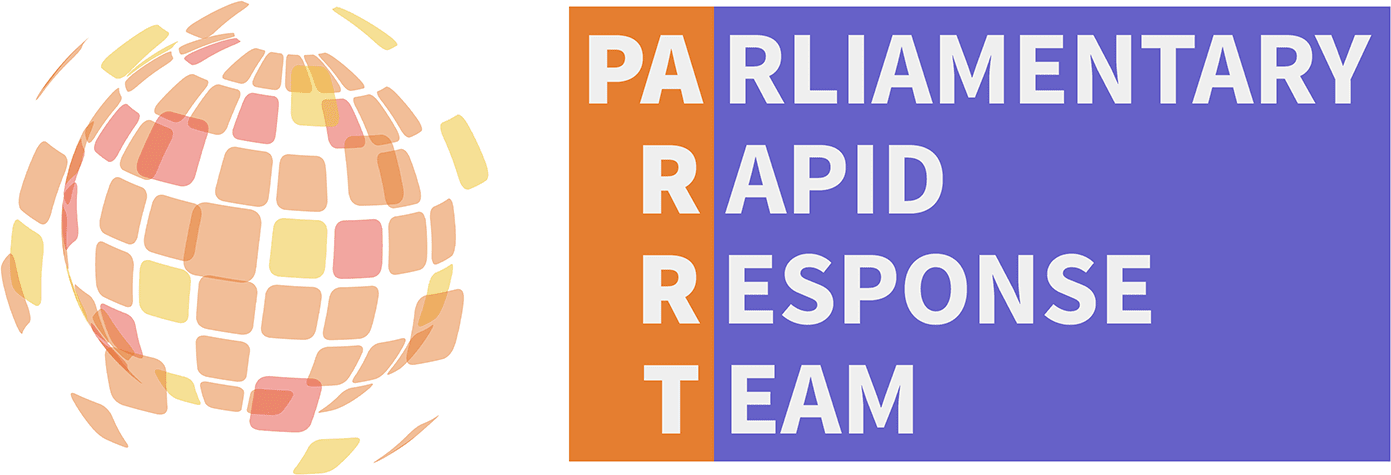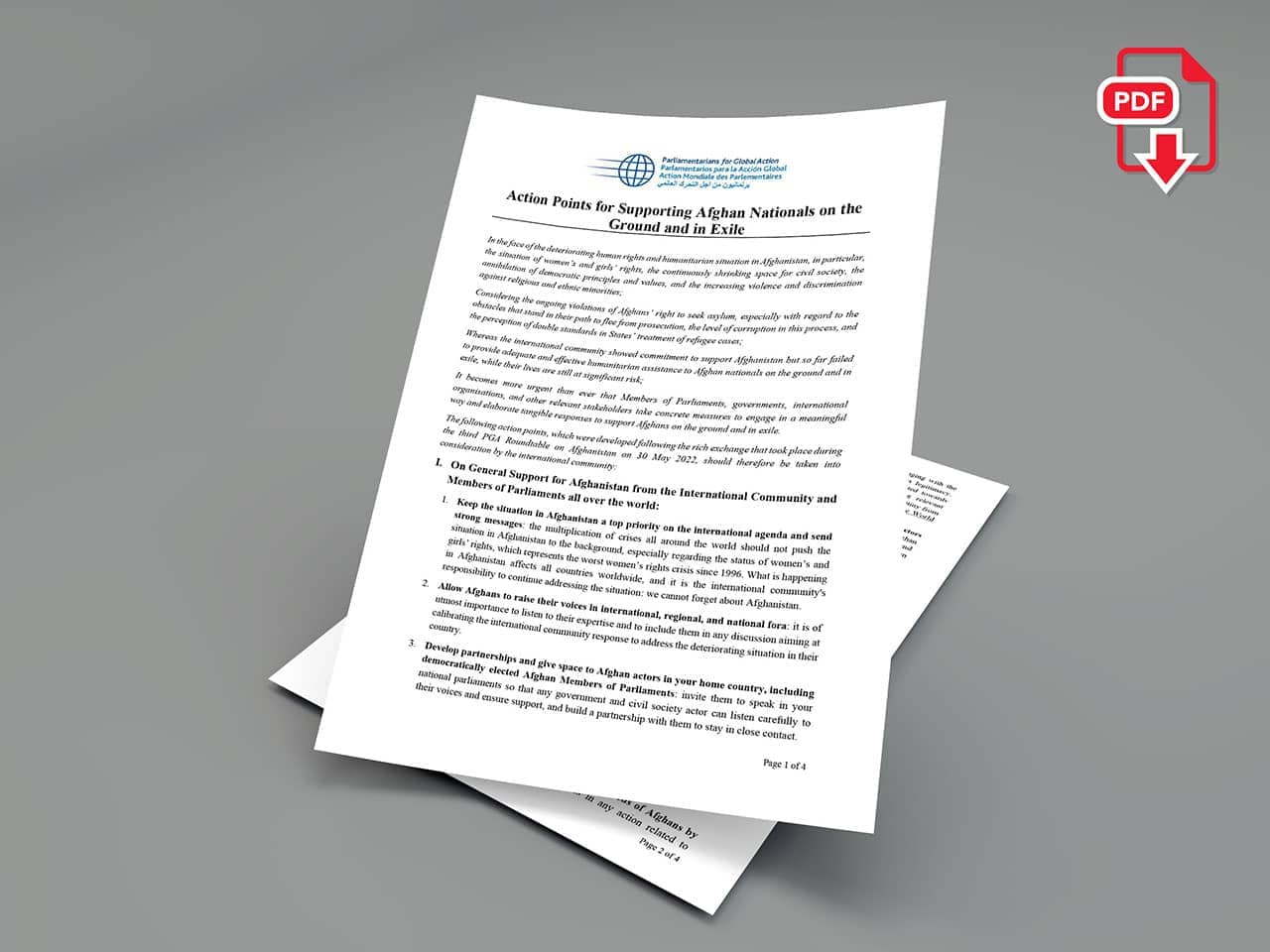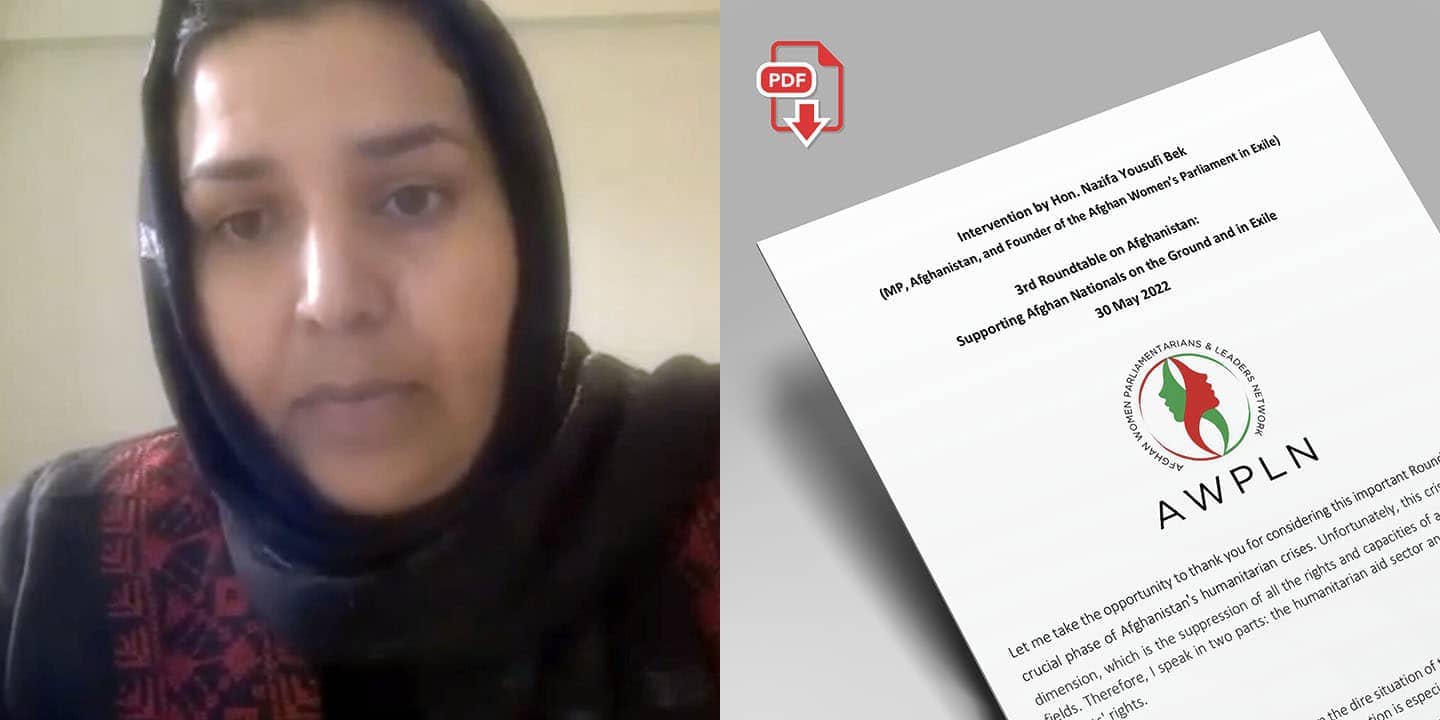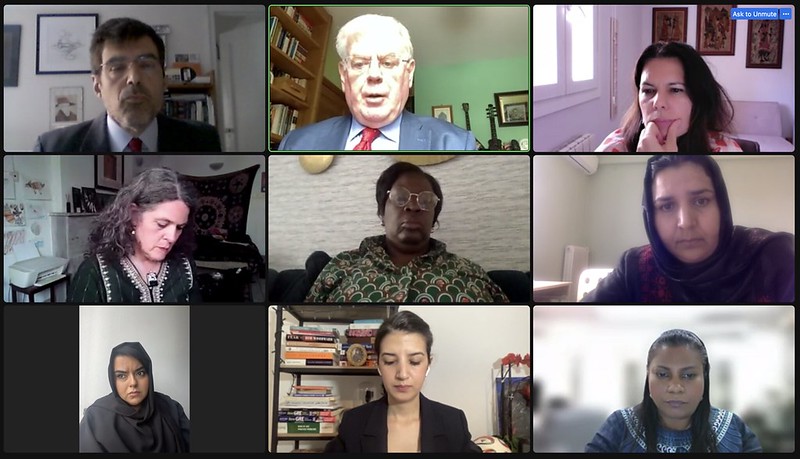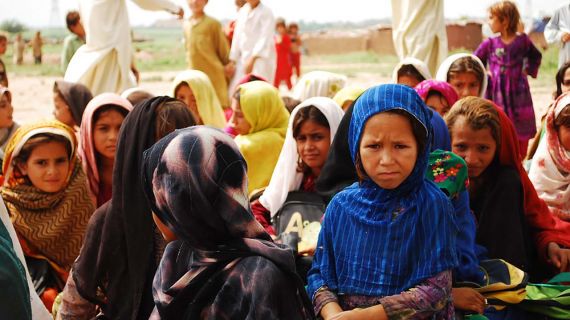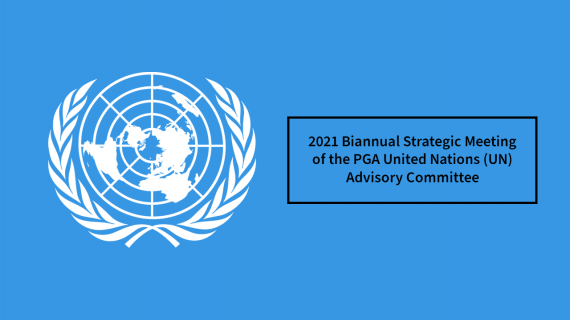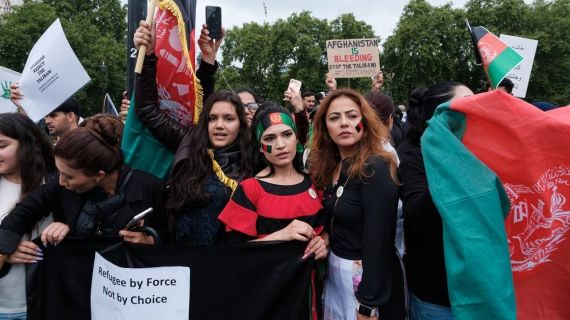EVENT
Third Roundtable: Supporting Afghan Nationals on the Ground and in Exile
A Conversation with Afghan Parliamentarians and their Counterparts
DATE: 30 May 2022
Action Points for Supporting Afghan Nationals on the Ground and in Exile
In the face of the deteriorating human rights and humanitarian situation in Afghanistan, in particular, the situation of women’s and girls’ rights, the continuously shrinking space for civil society, the annihilation of democratic principles and values, and the increasing violence and discrimination against religious and ethnic minorities;
Considering the ongoing violations of Afghans’ right to seek asylum, especially with regard to the obstacles that stand in their path to flee from persecution, the level of corruption in this process, and the perception of double standards in States’ treatment of refugee cases;
Whereas the international community showed commitment to support Afghanistan but so far failed to provide adequate and effective humanitarian assistance to Afghan nationals on the ground and in exile, while their lives are still at significant risk;
It becomes more urgent than ever that Members of Parliaments, governments, international organisations, and other relevant stakeholders take concrete measures to engage in a meaningful way and elaborate tangible responses to support Afghans on the ground and in exile.
The following action points, which were developed following the rich exchange that took place during the third PGA Roundtable on Afghanistan on 30 May 2022, should therefore be taken into consideration by the international community:
Since the Taliban takeover on 15 August 2021, the human rights and humanitarian situation in Afghanistan has drastically deteriorated: the country has sunk into an unprecedented economic crisis, food insecurity, and a wave of violence against the civilian population; more than half of the Afghan population is in need of humanitarian assistance to survive; the civic space has shrunk; women’s and girls’ rights have been increasingly restricted; about 3.5 million people are internally displaced; and about 2.6 million of Afghans are refugees, many of whom still encounter multiple challenges and life threats.
As the international community fails to provide appropriate solutions commensurate with its international commitments, urgent support for the Afghan society is needed now more than ever. Parliamentarians from all over the world need to engage meaningfully with their Afghan counterparts and communities in exile to ensure that their countries’ responses follow a human rights approach, including guaranteeing the protection of the rights of Afghans seeking asylum globally.
In this context, PGA organized a third Roundtable on Afghanistan on 30 May 2022 to facilitate an active discussion between Members of Parliament worldwide, representatives, and experts from the civil society. Moderated by PGA Secretary-General, Dr. David Donat Cattin, the event allowed panelists to reflect on new and concrete actions to better assist Afghans and address the grave concerns about its people’s humanitarian and human rights situation inside and outside the country. The conversation led to concrete action points based on the various concerns raised by the participants to ensure a concrete follow-up from PGA members, relevant stakeholders, and the international community as a whole.
Such steps are crucial to stop impunity from thriving in Afghanistan and worldwide. As stated by PGA President, Hon. Kasthuri Patto (MP, Malaysia), the rise of radicalism and extremism is a phenomenon that can affect any country, to the detriment above all of women’s rights. Considering that much remains to be done to protect universal values, democracy, justice, freedom, and human rights, she called on every Member of Parliament to give space to Afghan actors in their respective parliaments so that any government and civil society actor can listen carefully to Afghan voices and ensure their support.
Since the first panel focused on the humanitarian situation in Afghanistan, Hon. Mariam Solaimankhail (MP, Afghanistan) expressed her strong concerns and shared disillusion with the lack of effective monitoring mechanisms to report human rights violations and instruments that will allow humanitarian assistance to reach every Afghan, including those living in isolated areas. She called on the international community to stand up for Afghanistan, especially not recognizing the Taliban’s government as legitimate and ensuring that no one is left behind.
To avoid that humanitarian help ends in the Taliban administration’s hands or corrupt organizations, Hon. Nazifa Yousufi Bek (MP, Afghanistan, and Founder of the Afghan Women’s Parliament in Exile) recommended using the channeling of humanitarian aid through village councils, an existing institution that can effectively and equitably distribute aid to people across the country, including different ethnic groups, and that can adjust the assistance according to people’s specific needs. She further raised awareness for the situation of Afghan human rights defenders, who critically need international support, as well as assistance to continue their activities in a place where their lives will not be at risk.
Giving a comprehensive statement on the dire human rights and humanitarian situation in Afghanistan, the EU Special Representative (EUSR) for Human Rights, Mr. Eamon Gilmore, ensured that not only does Afghanistan remain a priority for the EU, but above all that the “EU has not, and will not, abandon(ed) the people of Afghanistan.” Among other EU essential engagements, including through the action of the EU Special Envoy for Afghanistan, Mr. Tomas Niklasson, and the EU Ambassador for Gender and Diversity, Ms. Stella Ronner-Grubačić, the EUSR Gilmore highlighted the EU substantial funding allocated to Afghanistan in 2022, which will provide critical relief assistance to the most vulnerable, including victims of war, forced displacement, and natural hazards. Affirming the lack of recognition of the Taliban by the EU, he stressed the necessity of ensuring that the Taliban de facto regime will be held accountable for their acts, and that those responsible for heinous attacks must be held to account in a judiciary system that abides by the principles of the Rule of Law and international standards.
For Ms. Heather Barr, Associate Director of the Women’s Rights Division at Human Rights Watch, the situation in Afghanistan is also the most severe women’s rights crisis in the world right now and the most serious women’s rights crisis since 1996. Although recognizing the importance of statements made by different countries and regional organizations, which unanimously denounced such a situation, she stressed the importance of turning these words into real coordinated and concerted action: States committed to implementing a feminist foreign policy should ensure a more decisive leadership here. As she further insisted on the necessity to avoid engaging with the Taliban in a way that would legitimize them, she identified several priorities for the international community: (i) support the UNAMA in fully implementing its mandate and monitoring the situation on the ground, including on issues relevant to women and girls; (ii) speak up when reports underline attacks on women and protesters; (iii) unlock the Afghan economy, through letting the Central Bank functioning in finding a way for appropriate oversight; (iv) push the ICC to move forward with its investigation on Afghanistan, which should include a specific focus on gender persecution; and (v) ensure that Afghans’ right to seek asylum is respected.
PGA’s Secretary General welcomed these remarks, and recalled the longstanding (since 2008) support that PGA provided to Afghan MPs to engage with the ICC, which included an emphasis on the widespread enslavement by the Taliban and other armed groups of children: enslavement is a crime against humanity falling under the Court’s jurisdiction.
The second panel allowed panelists to bring attention to the difficult situation of Afghan refugees worldwide and provide concrete solutions driven by Afghan voices to mitigate the lack of political commitment shown by States around the world. Among them, Ms. Sara Elizabeth Dill, Partner at Anthem Global, particularly emphasized the need for government resources to be devoted to expedited processing applications, as well as to support NGOs that provide legal assistance in this procedure. She also called on governments to continue evacuations for those seeking to flee, provide and ensure safe resettlement, especially for women and girls at significant risk of abuse and harassment, and for States to cooperate with each other to allow family reunifications. Finally, she also stressed the necessity to continue investigations into crimes against humanity and war crimes, including cases of refugees and internally displaced people, and develop means to push for accountability and reconciliation through the ICC, the principle of universal jurisdiction, or any other accountability mechanism.
Focusing specifically on the situation of Afghan refugees in Pakistan - a country used as a temporary place for Afghans to get their cases processed in other countries - Ms. Rukhsar Azamme, member of the LEAD IMPACT Team and human rights activist, shared the difficulties for Afghan family's ability to obtain an asylum certificate from the UNHCR, which is a necessary document that allows them to be safe from deportation, to have access to education and work, and to process their cases and apply for resettlement in Pakistan or any other country. Whereas this population fled persecution, such a situation continues to put their lives at risk and leads to corruption. She thus called on Member of Parliaments to ask their governments to pressure the UN and encourage the UNHCR that asylum certificates are processed in due time to ensure that Afghan people have at least an option to apply for resettlement.
In founding the Afghans in Crisis Network - a coalition of activists and alumni from the Global Campus for Human Rights - Ms. Charlemagne Gomez, a human rights defender, assists and helps Afghans flee from Afghanistan and resettle. However, she pointed out the many difficulties encountered by these persons in their asylum-seeking process, particularly in obtaining interviews with embassies and getting their cases assessed - even though all the people she is in contact with are at great risk. She particularly underlined the financial issues Afghan refugees are encountering, notably due to the high costs of visas and relative procedures, exacerbated by the slowness of application procedures. She stressed that the expertise of Afghan refugees has contributed to building a more democratic society in Afghanistan before the Taliban takeover and could significantly contribute to other countries’ communities as well. However, if we are not able to get these persons into a safe place, she highlighted the necessity to maintain their legacy to allow Afghans to rebuild their country when the time comes. In this context, she believes that developing networks, including networks of Afghan parliamentarians in exile, is of utmost importance: it enables maintaining the expertise of these people alive and relevant.
To conclude the Roundtable, legislators from diverse regions reflected on what concrete steps that parliamentarians around the world can take in their countries and beyond. In this regard, Hon. Raymonde Lawson (MP, Togo) underlined the importance of defending women’s rights and the necessity to empower women. She stressed the need to stay in touch with the democratically elected Afghan Members of the Parliament, support them daily, and invite them to share their inputs in other parliaments worldwide. She also called on further reflections to implement mechanisms and sanctions that will pressure the Taliban and other local and international actors involved with the Taliban, without imposing more suffering on the Afghan people.
Emphasizing the multitude of crises currently going on all over the world, Hon. Ali Ehsassi (MP, Canada) noted the necessity to keep the situation in Afghanistan on the top of the international agenda. While recognizing that despite the efforts and engagements made by Canada, much more needs to be done to help Afghanistan and Afghan refugees, he ensured that the country remains committed to continuing to provide financial and humanitarian assistance.
As Chair of the European Parliament Delegation for relations with Afghanistan, Mr. Petras Auštrevičius (MEP, Lithuania) shared three major elements to keep the focus on: (i) maintaining international community attention on the situation in Afghanistan, including on women’s rights and the fight against impunity, and sending solid messages - as demonstrated in the recent European Parliament Resolution on the situation in Afghanistan, in particular the situation of women’s rights; (ii) ensuring partnership with actors in exile, including democratically elected members of the Afghan parliament; and (iii) strengthening practical support to Afghan students, so that they can continue their education, as well as to the Afghan society as a whole, through humanitarian assistance, notably the one ensured by UN agencies working on the ground.
Finally, Hon. Rozaina Adam (MP, Maldives) and Chair of the PGA Parliamentary Rapid Response Team (PARRT) underlined parliamentarians' key role in making a difference in protecting human rights and finding Rule of Law solutions to ensure accountability. Among other actions, she suggested that parliamentarians from all over the world engage at the national, regional, and international levels to prevent and halt mass atrocities, ensure accountability for heinous crimes and access to redress and reparations for survivors, and provide assistance and refuge to those fleeing the Taliban regime. One way of doing so is to rapidly and effectively work on adopting domestic legislation that incorporates the definitions of international crimes. In addition, she stressed the need to extend civic participation and develop joint and participatory strategies such as intercultural dialogue to enhance the capacity of communities to be proactive in preventing mass atrocities.
Concluding the Roundtable, Dr. David Donat Cattin shared PGA’s commitment to continue raising awareness of the situation in Afghanistan by sharing and giving space for Afghans to make their voices heard and advocate, together with our members, for concrete actions to be taken.

